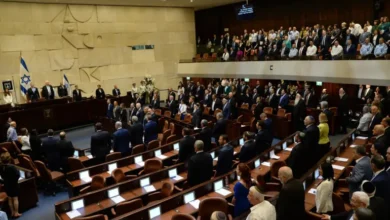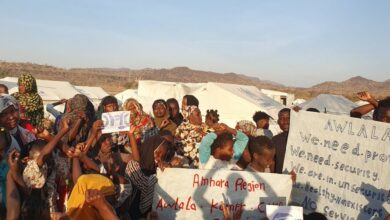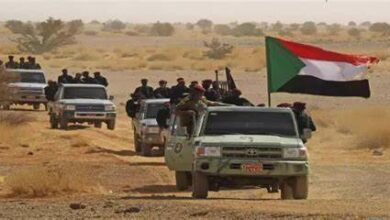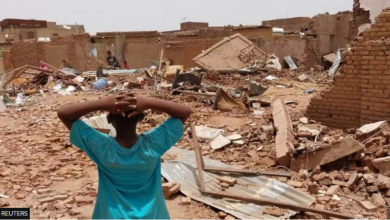Details of Volker Peretz’s speech on Sudan before the Security Council
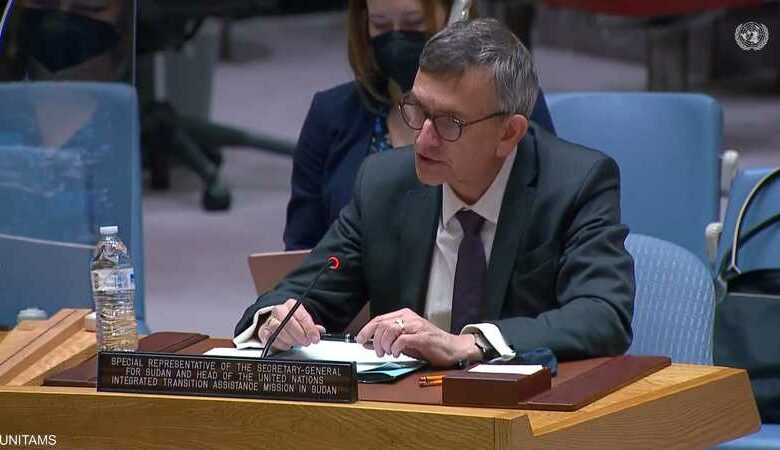
The UN envoy to Sudan, Volker Peretz, spoke before the Security Council and gave a briefing on the situation in Sudan. His speech was detailed as follows:
The situation in Sudan since my last briefing in May has seen new political dynamics, but the socio-economic situation has also continued to deteriorate. Security incidents affecting civilians have increased throughout the country, while humanitarian needs are steadily increasing. The overall situation will continue to deteriorate unless a political situation is reached to reconstitute a credible, fully functional, civilian-led government capable of re-imposing State authority throughout the country and creating conditions for the resumption of international cooperation, including debt relief. This solution is by no means guaranteed, but there is an opportunity to reach a new political agreement that could inaugurate a new transitional period towards democratic rule.
Next month, on October 25, the military change in Sudan will complete its first year. The past ten months have seen repeated demonstrations against the coup. 117 people were killed, and thousands were injured in the course of these demonstrations. At the same time, efforts to achieve the goals of the 2018 revolution continued, especially among youth, women, and trade and professional unions.
A recent noteworthy event was the formation of a new, independent union of journalists, whose members not only asserted their right to form a union, but also elected their own board and president through competitive voting for the first time in 33 years. At the same time, elements of the former regime that had been removed by the revolution gradually began to return to the political scene, the administration, and the public sphere.
Regarding the political process, the army made some important decisions, and there were some promising developments among civilians. On July 4, the head of the Sovereign Council, Lieutenant-General Abdel Fattah al-Burhan, announced the army’s intention to withdraw from politics. Lieutenant-General Mohamed Hamdan Dagalo, head of the Rapid Support Forces, later repeated the same commitment, while a large part of the audience doubted that the military leadership meant what it said, the declaration generated momentum among the civilian forces, and four/five major initiatives emerged in response aimed at arriving at a common civilian vision.
Last Saturday, the lawyers’ Association presented to the tripartite mechanism the outcome of their work on a draft constitutional framework. The project was explicitly endorsed by parties who undertook two other major initiatives, which means that the Bar Association initiative now brings together a broad spectrum of civil forces around one vision, including the FFC-Central Committee parties on which the government of former Prime Minister Hamdok relied and related parties. They were not in that government like the Democratic Unionist Party, and some of the signatories of the Juba Peace Agreement are still present in the Sovereignty Council today.
The tripartite mechanism, made up of the United Nations Integrated Mission in Support of the Transition in Sudan, the African Union and the Intergovernmental Authority on Development, has been involved in all initiatives. We have facilitated the active participation of women and provided constitutional expertise to those who requested such assistance, and we are currently in the process of comparing the constitutional and political visions that have been issued. Almost all stakeholders, including the military in particular, have expressed their desire for the tripartite mechanism to have a role—either by combining various initiatives, finding compromise proposals, or eventually brokering an agreement with the military.
In fact, I am optimistic about the commonalities in the current debate in Sudan. There are, undoubtedly, important differences about the division of powers between institutions, particularly the role of the military, but the gaps have narrowed and there is now broad consensus on, among other things, the need for a civilian head of state, an independent prime minister, and a cabinet of experts or technocrats rather than party leaders.
There is also consensus that the issue of transitional justice should be at the top of the list of priorities. Therefore, the opportunity is ripe to end this crisis, and the military and civilian forces must seize it. While any political agreement must be entirely Sudanese in ownership, the tripartite mechanism stands ready to invite the parties to meet on a single text to settle the remaining differences.
Continuing political deadlock The human rights situation has not improved since my last briefing, 20 protesters have been killed and at least 1,700 people injured. I have repeatedly considered it necessary to publicly condemn the excessive use of force by the security forces as well as their targeting of health facilities and medical personnel.
The political crisis in Khartoum is contributing to instability in the rest of the country. Peace talks between the government and the Sudan People’s Liberation Movement/North that were suspended in the summer of 2021 have not resumed. Of particular concern is the escalation of violence in Darfur and Blue Nile.
Between May and August, the United Nations Integrated Mission in Support of the Transition in Sudan documented 40 incidents of community violence that killed more than 300 civilians. National and local authorities, including the commander of the Rapid Support Forces, leaders of movements signatories to the Juba Peace Agreement, regional and state governors, and leaders of indigenous administrations and civil society have made attempts to broker reconciliation agreements and a cessation of hostilities in Darfur and Blue Nile, but the sustainability of these agreements It remains uncertain in the absence of effective state authority. I urge all communities to refrain from hate speech that fuels intercommunal tensions. I urge the authorities to urgently address protection gaps, and there should be no doubt that the responsibility to protect civilians rests with those authorities.
Almost a year after the military seized power on October 25, Sudan still lacks a fully functioning legitimate government. The army’s decision to withdraw Recent policy and initiatives by civilian forces provide an opportunity for the military and political forces to reach an agreement on the way forward.
The time factor, however, is very important: the longer the political paralysis continues, the more difficult it will be to return to the transition that UNITAMS has been tasked with helping. I urge all actors to seize the opportunity and reach a credible agreement on a solution that has legitimacy in the eyes of Sudanese women and men. We, the United Nations and our partners in the tripartite mechanism, remain insistent on our efforts in that direction. I count on this Council and the wider international community to support our efforts and provide coordinated support to Sudan at this critical time


